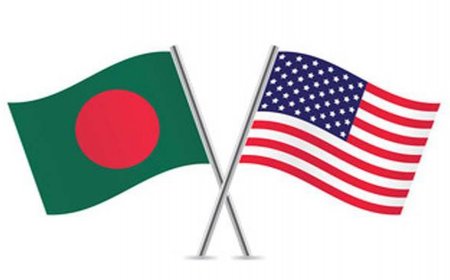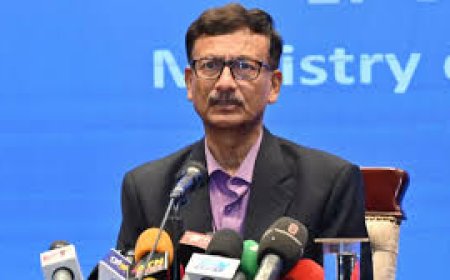Bangladesh's pursuit of a corruption-free future
Bangladesh's pursuit of a corruption-free future

**Bangladesh's Pursuit of a Corruption-Free Future**
Over more than fifty years of independence, Bangladesh has struggled significantly in its efforts to combat corruption, remaining one of the most corrupt countries in the world as evidenced by its poor performance in global corruption indices. Corruption has increasingly infiltrated various sectors, involving politicians, civil and military officials, businesspeople, and law enforcement. During the over 15 years of the previous government, the issue intensified, with no substantial actions taken to mitigate it.
Corruption manifests in multiple forms, including bribery, favoritism, and embezzlement, affecting everyday citizens, entrepreneurs, and investors alike. Accessing government services often requires bribes, and public offices routinely delay tasks unless “facilitation fees” or “speed money” are paid. This corruption has become a normalized practice, placing an undue burden on honest citizens while providing opportunities for unscrupulous individuals.
The cycle of corruption is self-perpetuating; one corrupt act leads to another. In the past, licenses, permits, and contracts have been exchanged for bribes, often granting opportunities to unqualified entities and resulting in poor service delivery as these entities prioritize profit over integrity. While the exchange of money between individuals may not seem to hinder economic growth immediately, the consequences become apparent when infrastructure collapses due to substandard materials, leading to economic losses and tragic fatalities. When project costs exceed initial estimates, citizens are left to shoulder the financial burden through increased taxes and tolls. An example of this is the Padma Bridge project, which ended up costing significantly more than originally projected. Furthermore, megaprojects have become a significant source of overspending, prompting the interim government to review major projects such as Payra Port and the Dhaka Metro Rail due to the vast amounts of money spent.
Corruption also deters private sector investment by creating uncertainty and inflating operational costs. Genuine investors frequently encounter hurdles in obtaining necessary permits, while high facilitation fees favor those with privileged access. For instance, businesses that acquire prime land at reduced rates or receive utilities through informal payments enjoy an unfair competitive advantage over those adhering to market rules. Companies forced to pay hefty bribes for essential services struggle to compete, ultimately stifling innovation, job creation, and productivity, all crucial for national economic growth.
In addition to economic implications, corruption incurs substantial social and environmental costs. When the government fails to generate adequate revenue through taxation, it lacks the resources to fund vital social protection programs for vulnerable populations. Corrupt practices also enable illegal encroachments of rivers and forests, leading to environmental degradation. Bribery allows unfit vehicles on the roads, exacerbating pollution, harming public health, and diminishing worker productivity. These conditions ultimately escalate public expenditure while decreasing the nation’s overall economic output.
To effectively address corruption, decisive action is required. There must be a push for greater accountability and transparency within systems, with digital governance playing a crucial role. It’s essential to punish corrupt practices, uphold the rule of law, and protect and motivate honest officials.
However, the issue of corruption also presents a deeper challenge related to moral hazard. Unchecked corruption encourages more individuals to engage in corrupt activities, while others may become disillusioned and disengaged. Large-scale financial crimes, such as the siphoning off of public funds by willful bank defaulters, have gone unpunished, sending a message that such actions carry little consequence. As wealth accumulated through corruption gains influence, corrupt individuals often gain social acceptance, undermining the integrity of governance.
Eliminating corruption requires a holistic improvement in governance across all sectors. Institutional reforms are vital for sustainable progress. Although Bangladesh undertook economic reforms in the 1990s aimed at liberalizing the economy, it did not adequately strengthen governance institutions at that time. Subsequent reforms have been limited in scope and impact, and efforts to reform public administration have remained largely unaddressed, with significant actions confined to introducing new pay scales for government officials. Establishing accountability within public institutions is crucial for combating corruption effectively.
Strengthening the Anti-Corruption Commission (ACC) is a key area for reform. Established in 2004 under donor pressure to operate independently, the ACC has not received the necessary legal, administrative, or financial support from successive governments, leading to political interference that hinders its effectiveness. Although there have been government plans to empower the ACC, these commitments have yet to materialize.
The interim government has initiated several commissions aimed at introducing reforms in critical sectors, particularly regarding the ACC and public administration, which are essential for addressing corruption in the country.
Thus far, Bangladesh's economic development has progressed largely independently of improvements in governance. However, achieving sustained and inclusive growth necessitates confronting corruption to enhance the efficiency of development efforts. Without addressing corruption, the country’s progress will remain impeded. Effective governance reforms are essential to unlocking the full potential of Bangladesh's economy and securing a prosperous future for all its citizens.
What's Your Reaction?





















































































